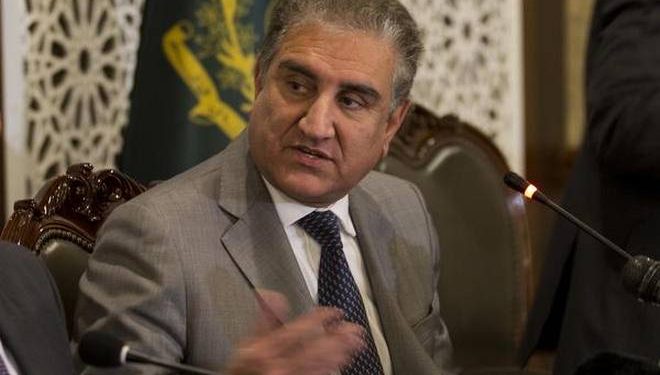Lahore, April 2: Pakistan could be blacklisted by the Financial Action Task Force (FATF) due to “lobbying by India”, Foreign Minister Shah Mahmood Qureshi said as he estimated that the country could suffer USD 10 billion loss annually if it remains in the watchdog’s grey list.
In June last year, the Paris-based FATF had placed Pakistan on the ‘grey list’ of countries whose domestic laws are considered weak to tackle the challenges of money laundering and terrorism financing.
The FATF is working to curb terrorism financing and money laundering and has asked Pakistan to reassess the operation of banned terrorist outfits in the country. Pakistan is under intense international pressure to rein in terror groups like the Jaish-e-Mohammed (JeM) after the Pulwama terror attack.
“The Foreign Office is calculating the annual loss if Pakistan is pushed in the black-list by the FATF as India is lobbying for this,” Foreign Minister Qureshi told reporters at the Governor’s House here Monday evening. He said the government has calculated that Pakistan will face USD 10 billion loss annually if it remains in the ‘grey list’.
A group of experts from the FATF recently visited Pakistan to review whether Islamabad has made enough progress on global standards against financial crimes to warrant its exclusion from the watchdog’s ‘grey list’.
During its three-day visit to Islamabad in the last week of March, a delegation of the Asia-Pacific Group (APG) on money laundering, a regional affiliate of the FATF, expressed serious reservations over insufficient physical actions on ground against banned groups to block flow of funds and activities.
The visiting team members reportedly raised questions over specific and on-ground actions against each of the eight organisations proscribed under international requirements. It wanted break-up of suspected transaction report against each banned outfit and specific actions taken against each entity. The team members said that activities of banned organisations and non-profit organisations are still unchecked at the provincial, district and grass roots level where they can still raise funds and hold meetings and rallies.
The FATF noted that Pakistan had revised its terror financing risk assessment but did not demonstrate a proper understanding of the terror financing risks posed by the Islamic State group, Al-Qaeda, Jamaat-ud-Dawah (JuD), Falah-i-Insaniat (FIF), Lashkar-e-Taiba (LeT), Jaish-e-Mohammed (JeM), Haqqani Network and persons affiliated with the Taliban. Prime Minister Imran Khan’s government recently banned Mumbai terror attack mastermind Hafiz Saeed-led JuD and its charity wing FIF. It declared JeM and five other groups “high risk”. It also arrested over 100 members of the banned outfits including the son and brother of JeM chief Azhar Masood.
The government also has taken over the control of the properties of the banned outfits including the JeM, the JuD and the FIF what it says in accordance with the FAFT requirements and the National Action Plan.






































